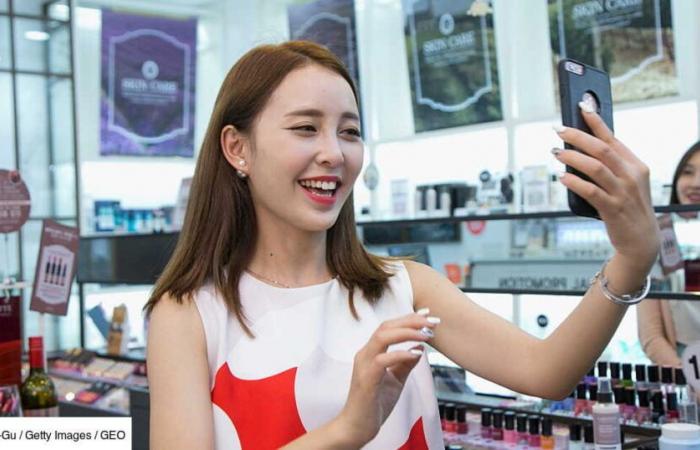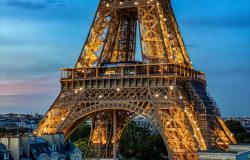If, like the majority of French people, you wash your face every evening with a single soap and only spend about twenty seconds on it, you are probably unaware of the wonderful world of “K-Beauty”.
Also called “Korean beauty”, K-Beauty refers to all skin care products and routines originating in South Korea. She advocates a preventive and hydrating approach to the skin, multi-step skincare routines and the use of natural ingredients. The goal? Getting what its followers call a “glass skin” (i.e. perfectly smooth and luminous skin).
Korean cosmetics industry to conquer the world
In 2022, South Korea was the fourth largest exporter of cosmetics in the world, behind France and the United States, almost equal to Germany. The K-Beauty phenomenon is not only shaking up the global cosmetics industry, it is now having an impact on tourism. K-Beauty enthusiasts, explains the South China Morning Post, flock to Seoul, where they go to buy products spotted on the Internet, but also to find advice or discover the latest trends in beauty before the rest of the world. of cosmetics.
They then set their sights on the makeup studios that are flourishing in the city. Often nestled in the trendiest neighborhoods of the capital, these studios are frequented by both celebrities and anonymous clients.
Makeover sessions for tourists
During makeover sessions, makeup artists highlight their clients’ best features, with the aim, obviously, of selling the products that enabled the transformation.
Among them, Kim Han-sol, works as a makeup artist for the Neu Haus studio in the Yongsan district. According to her, visits to Korean makeup studios have become a “travel ritual” a must for many foreign visitors. “It’s a new trend that is spreading through word of mouth among tourists.”
K-Beauty is not just about making makeup studios successful. Once makeup and hair are done, tourists head to photo studios, where image professionals immortalize their look in professional or less formal portraits. “The whole experience allows for a new type of memory of the trip.”
Social networks, levers of tourism
This new tourist attendance at Seoul makeup studios, according to Kim Han-sol, reflects the growing global influence of K-Beauty. She points out that most of her foreign clients discover the existence of her studio through social networks like Xiaohongshu, a Chinese application similar to Instagram.
The makeup artist finally explains the success of K-Beauty through the individualized approach that she defends, when most other cosmetic approaches boast a single method for everyone.
The Korean tailor-made formula is all the more effective, according to her, as “Today everyone has their own style, and customers are not necessarily looking for conventional beauty. On the contrary, they want to stand out.”






